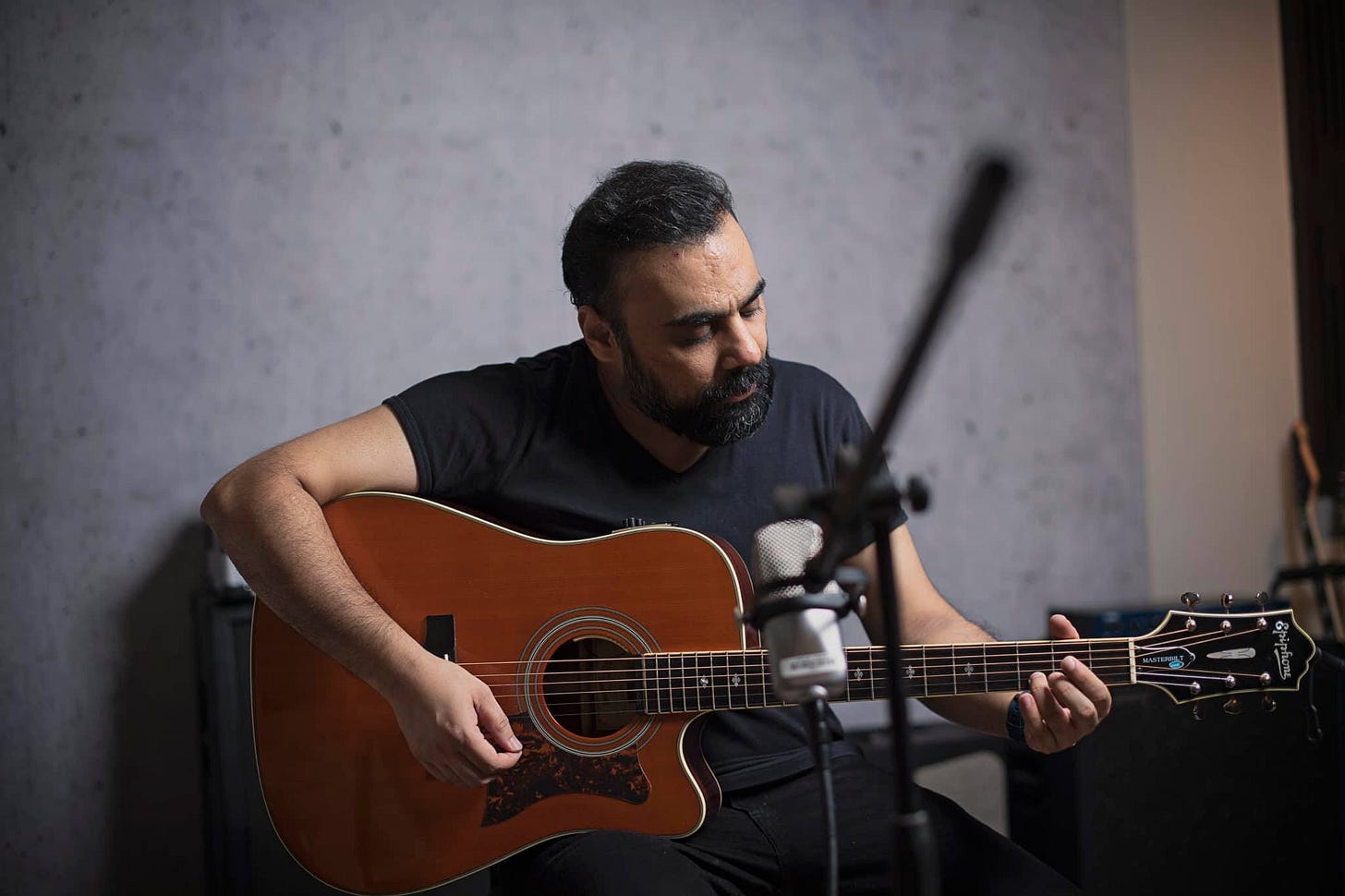Xulfi
The defining movements in Pakistani music can often be traced back to a few strong-willed individuals with outsized impact. What I mean by this is that the various successful eras of pop music in Pakistan, over the last few decades, have not been formed through some systematic infrastructural developments. They tend to not be the function of the institutions developed over time with established capability and enduring functional prowess. Rather the large moments are created by individuals through extreme force of will and quality of output, that on their own are able to usher in an era which allows new music to thrive.
The late 80s and early 90s were enabled by the influence of Shoaib Mansoor, first through the TV show Music 89 and later through the his mentorship of the Vital Signs. The Vital Signs in their success were linked to a number of other acts at the time, the most successful of which, Junoon, was started by a member from the Signs. Mansoor would work with the Signs and other artists on various famous television series: Dhundlay Rastay, Geetar 93, and Gulls and Guys.
The mid 90s ushered in an era of new artists, often showcased on Music Channel Charts, a television show on NTM produced under the eyes of Ghazanfar Ali, who sought out new music. Ali would later launch Indus Music (which morphed into MTV Pakistan), ushering in a famous era of new pop music.
In the ashes of the music channels of this era, and of failed partnerships with large record labels through bad contracts and under the crippling effects of piracy and easier internet access, the prominent showcase of new Pakistani music became Coke Studio. This time, the core actor was Rohail Hyatt, formerly of the Signs, and who post his time with the Signs worked on a TV show called Battle of the Bands which has recently been reincarnated by Pepsi to compete with Coke Studio.
One individual whose influence is arguably of the same stature but less well known is Zulfiqar Jabbar Khan, popularly known as Xulfi. Xulfi achieved prominence as a prog-rock guitarist for the band eP. eP was formed to compete in the first iteration of Battle of the Bands, where they were runners up, and later became one of the most well known acts of the Indus Music era. As the members of eP continued to pursue their individual pursuits, Xulfi played with his other band Call and built on his work as producer for various artists. Through these years Xulfi continued running a small guitar school at his house, where by my estimate he must have taught at least dozens, if not hundreds of students over the years. In the shadow of Coke Studio, other large companies pushed to gain music shows of their own. Xulfi, with his team, worked on an idea to showcase completely unknown younger musicians. He pitched it to Nescafé and it launched as Nescafé Basement.
The show itself has had the most flexible format of all branded TV shows, covering old songs, doing lots of new ones, singing English songs, and often bridging genres more drastically and frequently than other shows. Perhaps as a result of this, but arguably more as a function of the money behind the show’s marketing, the music from the show is less well known (and for earlier seasons of the show, harder to find). But whatever the impact of Nescafé Basement’s music directly, the more lasting impact has been the creation of a new generation of musicians that are now visible across the industry. If you today see a backing musician or a band on Battle of the Bands, chances that they are somehow connected to Nescafé Basement are high. Xulfi is one of the few producers who continues to produce songs for Pepsi, Nescafé and Coke – driven by the fact that he is very good and has mentored a number of musicians that will play on these songs. Xulfi is one of the architects of today’s scene.
This is Ranjhna from Nescafé Basement – a folk melody written and sung by self-taught Shahzad-e-Ali, to Xulfi’s rock arrangement.
UPDATE Jan 14: Corrected the narrative around the creation of Nescafé Basement, which was in fact the result of Xulfi pitching the idea to Nescafé, as he pointed out to me on Instagram. The original post indicated that Nescafé tapped Xulfi to lead Basement, potentially insinuating that the idea existed before they came to Xulfi.


